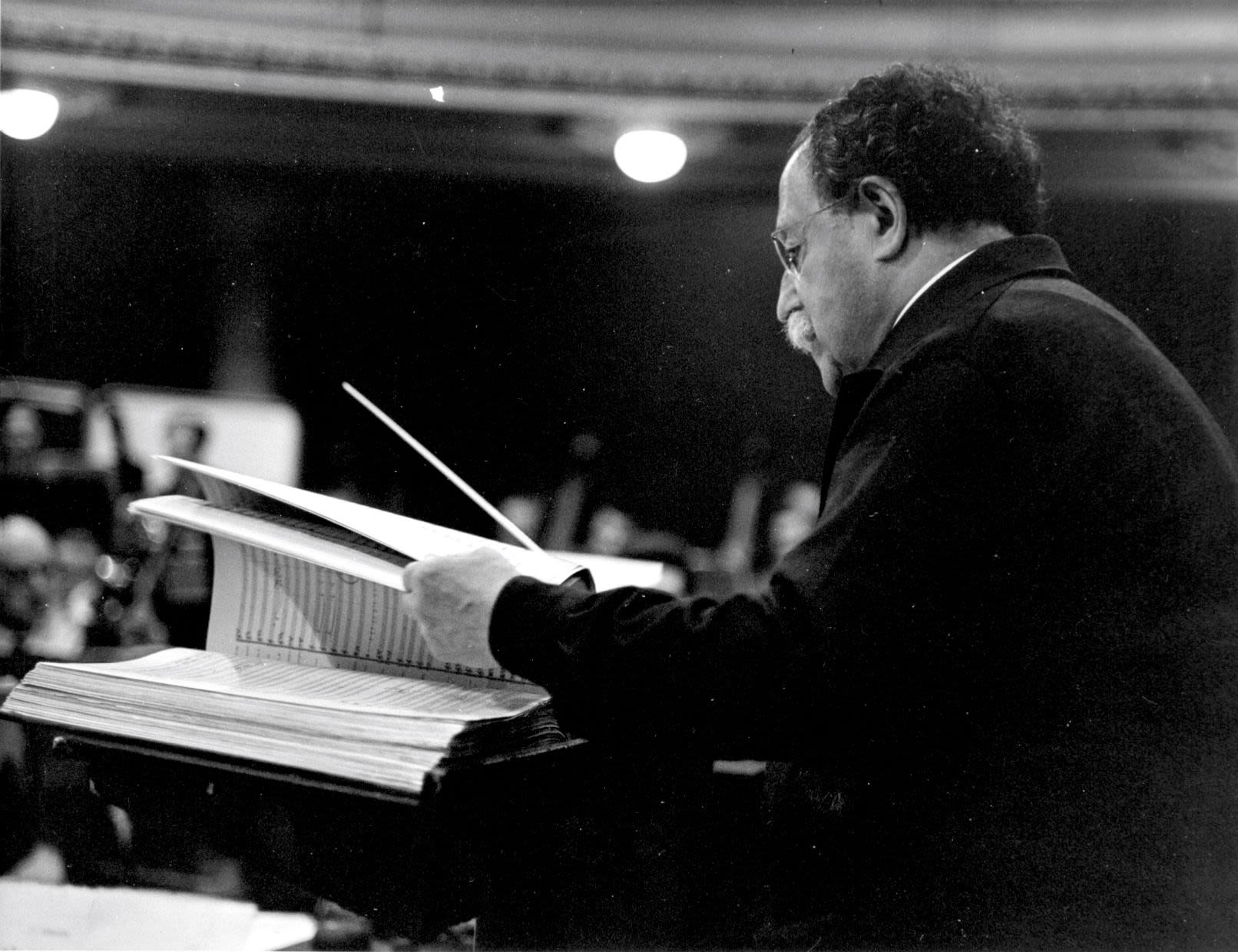Brahms: Symphony No. 2/LSO/Pierre Monteux—ESOTERIC SACD/CD [2024]
Whither the compact disc?
I’ve been a confirmed vinylphile for many years. Sure, not as acerbic about the “Perfect Sound Forever” devices and their acolytes as others, but certainly happy to privately snub the whole damn enterprise. Because, let’s face it, cheap and cheerful mass-market CD players and hastily recorded and produced software sounded like crap—a harsh, bitter pill to swallow for many. And then we had the equally loud MP3 jockeys telling us how crap vinyl reproduction was.
As of the summer of 2024, we are getting to a very good place. FOMO is dead, quality-used records are cheaper, high-quality vinyl reissues are plentiful, there are 100s of turntables from which to choose and even the CD player is making a comeback. Legendary manufacturers are now producing high-quality CD players with very refined transports married to excellent DACs. Many are now Super Audio CD, but some very distinguished designers prefer RedBook playback only.
My MBL CD/DAC (USD 15,400), a Jürgen Reis design, is from one of the few super manufacturers who eschew the SACD drive for many practical reasons in favour of good old RedBook. The proof for me is in the glorious musical presentation. So, when I throw in one of the gold standard discs, remastered gems by ESOTERIC, it reads the CD layer bypassing Super Audio and to my ears, is none the worse for it. In fact, some of the greatest sounds recently to come from my reference system are from the ESOTERIC digital discs. ESOTERIC recently got back into vinyl—check Audiophilia for my reviews of these superb new pressings.
I’m so intrigued by how the SACD layer may sound on this disc, that I am receiving the USD 22,000 Métronome AQWO 2HYBRID DAC + SACD/CD + STREAMER for review (September 2024). I’ll be using this Brahms disc (and others) for review purposes.
I received this 2024 SACD/CD release a week ago and it hasn’t been out of the machine since and played many times. Under review is the original Philips recording from 1962 of Brahms’ Symphony No. 2 conducted by Pierre Monteux (the ESOTERIC cover suggests Decca Records as the source, but it was originally released on Philips). The recording took place in Wembley Town Hall with three engineers, Hans Lauterslager, Co Witteveen and Frits van Swoll. The recording was produced by Vittorio Negri.
Pierre Monteux (1875 – 1964) conducting the LSO. He was the principal conductor of the LSO from 1961 -1964).
TRACKLISTING / ARTISTS
JOHANNES BRAHMS
Symphony No. 2 in D major, Op. 73
Tragic Overture, Op. 81
Academic Festival Overture, Op. 80
London Symphony Orchestra
Pierre Monteux
Pierre Monteux is one of those wholly original conducting giants who could turn his interpretive hand to anything. Fabulous in French repertoire, famous for conducting the premiere of Le Sacre du Printemps, he was also superb in mainstream classical repertoire like this amazing Brahms Symphony No. 2 and so many other works.
So this performance features mainstream tempos, yet ones where Monteux lets the music breathe and the wonderful LSO soloists take the lead. Brahms’ sunniest symphony is positively beaming through all four movements with equivalent feeling on the two bonus overtures. And after a deep dive on Apple Music last night comparing 2nds and the two overtures, I’m convinced Monteux’s views are the strongest. His opening of the symphony is a match for Bruno Walter, king in this piece, refined and very beautiful with appropriate dynamics—Brahms was a real stickler. The “Adagio non troppo” highlights the superb string section of the LSO. Rich tonal qualities from top to bottom. Listen to the beautifully round pizzicati on all strings to hear how great remastered digital can replicate the best of analogue—I’m thinking of an original Decca pressing from Kingsway. Yes, that good, and echoed by bowed strings in the glorious string build-up at pick up into 5 bars before letter B. No one does it better than Karajan/Berlin 1965 DG, but the LSO runs them close.
The third movement, “Allegretto grazioso”, is perfect in its grace and geniality. And the finale is played with great virtuosity and for the trombones among us, listen to Denis Wick nail the infamous high D in the coda. Amazing.
So high, it’s written in the alto clef!
I would not say the LSO is a top Brahms orchestra like Berlin and Vienna, even in London in my experience, they take a back seat to LPO/Jochum and Philharmonia/Klemperer, but they make a superb noise, nonetheless. With Barry Tuckwell, horn, amazing in all his solos. Alex Murray on flute, and the phenomenal Denis Wick on trombone.
I’ve never heard an original Philips, but I think it was a very early “Made in England” issue before Philips decamped for The Netherlands. As such, I’m sure the ESOTERIC engineers had good-quality tapes to work with. They certainly make this Philips into a spectacular audiophile experience, with much of the spectacular stemming from beauty and balance rather than virtuosic zeal.
Very highly recommended.
MSRP USD 74.99
You may purchase ESOTERIC hardware and software at Amercian Sound (disclosure: an Audiophilia advertiser).

![Brahms: Symphony No. 2/LSO/Pierre Monteux—ESOTERIC SACD/CD [2024]](https://images.squarespace-cdn.com/content/v1/55787f0ae4b02f0501debbeb/1719609612233-S5ZU89O0VAN2I3S6RC0I/IMG_2027.jpeg)



